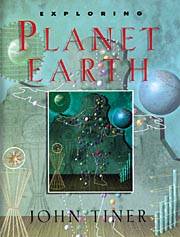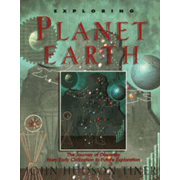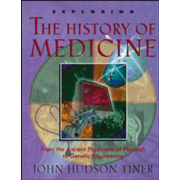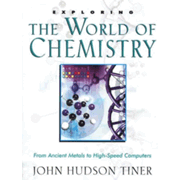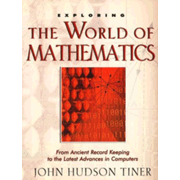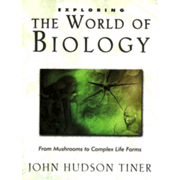John Hudson Tiner is an outstanding writer with a special talent for science topics. There are a number of books in this series although I reviewed only two two of them.
Exploring Planet Earth
This unusual look at explorations is subtitled "The Journey of Discovery, from Early Civilization to Future Exploration." Unlike other "exploration" books, it doesn't stick with a biographical format, following explorers in chronological order. It does some of that, but within the context of various scientific concepts related to exploration. For example, it begins with a discussion of Eratosthenes and how he calculated the circumference of the earth very accurately about 250 B.C. The importance of Isaac Newton's scientific studies and explanations of tides is presented in the context of explorers and would-be conquerors who had to contend with unfriendly tides.
Among the other topics addressed are discoveries made by Marco Polo on his travels, navigation and astronomy, winds and storms (including trade winds and others that affect sailing), time and latitude, the compass, the Gulf Stream, glaciers, rivers, atmosphere, flight, and space travel. All of these topics include stories of real people and events.
The author's Christian viewpoint is subtly presented. Each chapter is followed by a set of questions—some comprehension and some thought, but there's no answer key. If you assign these books for students to read, you'll have to read along in the book to judge answers yourself, but this should be enjoyable. For illustrations, It uses black-and-white photos, drawings, maps, and clip art. This book is probably best for upper elementary through high school, but I recommend it as a family read-together book.
Exploring the History of Medicine
Using a similar format, Exploring the History of Medicine, combines history, biography, and science to discuss topics like the genesis of microbes, the battle against smallpox, Vesalius' study of the human body through dissection and the battles he faced in trying to popularize this method of learning, discovery of microscopic life, the invention of Listerine, x-rays and MRI's, and many more topics. Subtitled, "From the Ancient Physicians of Pharaoh to Genetic Engineering," it makes a great supplement to use alongside either history or science studies for upper elementary through high school levels.





